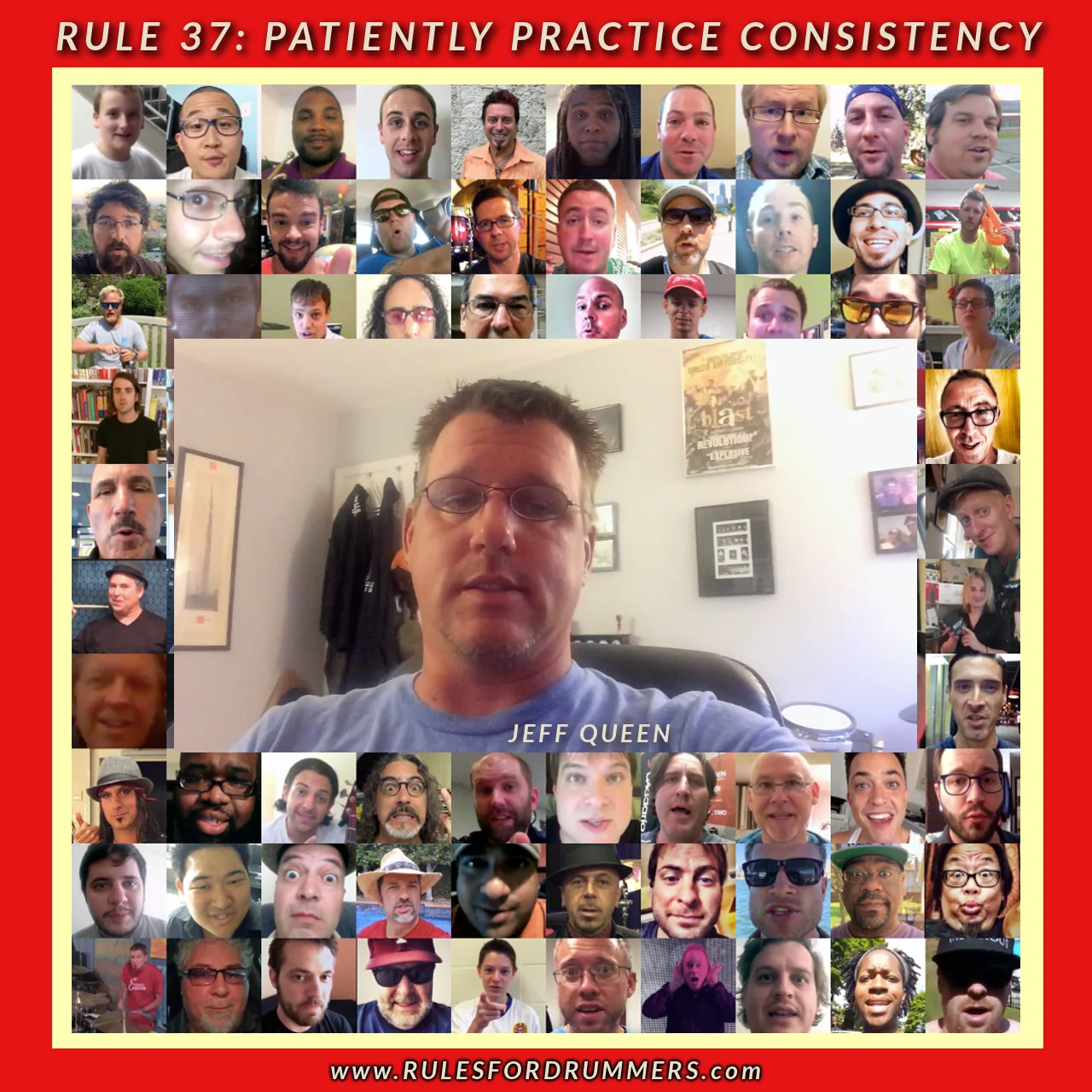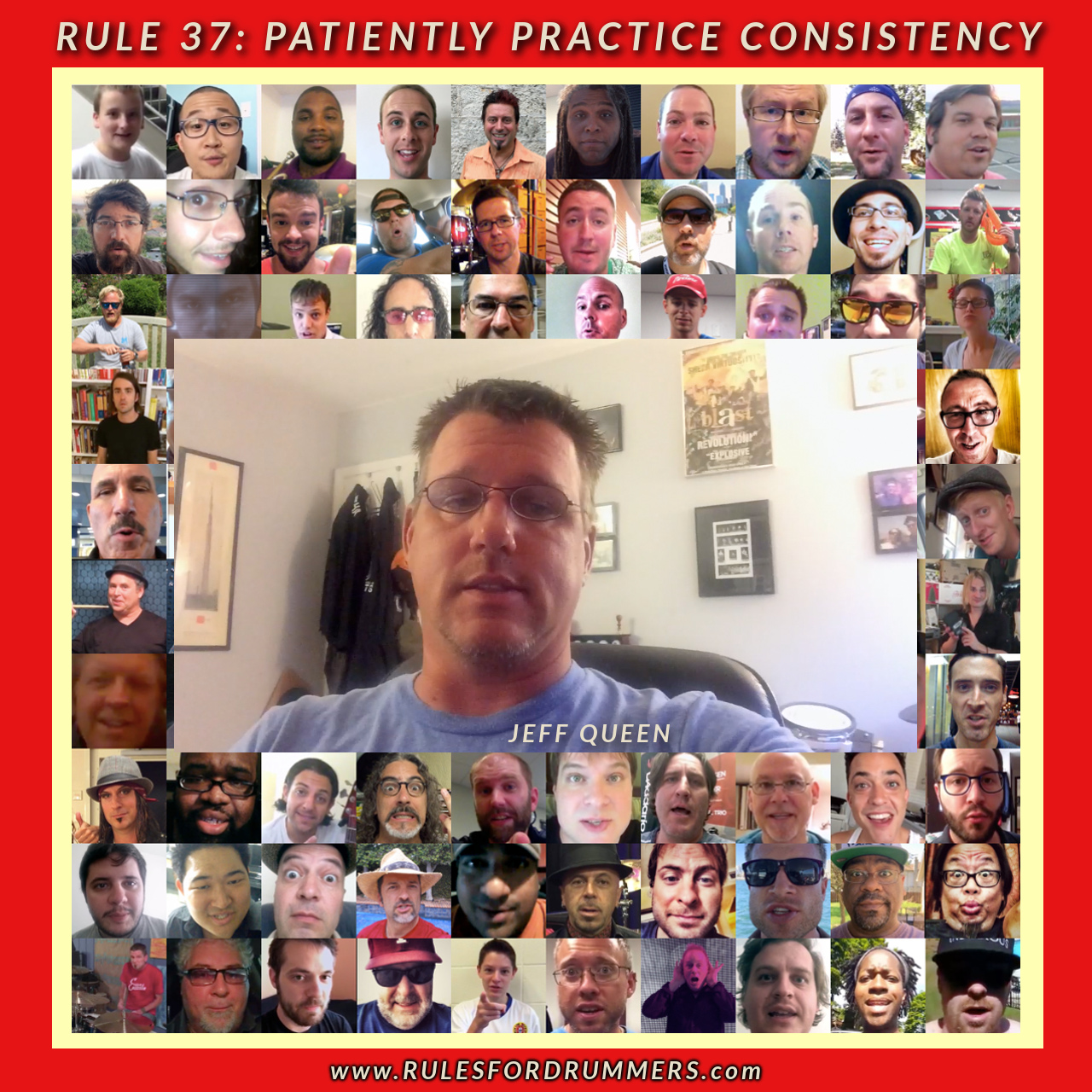#1 - INCONSISTENT INCOME
If you are a working drummer, chances are that you are doing many different things to earn a living: fill-in gigs, summer tours, weekend cover band gigs, weeknight jazz gigs, teaching lessons, or all of the above. Because gigs come and go year-round and can be quite unpredictable, it means that your income will likely be fluctuating from month to month.
Therefore, you need to treat yourself as if you were running your own streamlined business, because you are! As a professional drummer, you need to have a better handle on your finances than most other people do because you don't have the comfort of a full-time salary position. But, the good news is that it IS possible to make a living as a working drummer, you just have to make some changes to the way you handle your finances/lifestyle. Here are some tips on how to face an inconsistent income:
SAVE MONEY FOR THE REST OF YOUR LIFE, STARTING NOW - Because working drummers have inconsistent sources of income, you'll need to make it a habit of saving a portion of your income for when (not if) work dries up a bit. A good rule of thumb is to always set aside 10%-15% of income from every gig you play moving forward. Send it straight to an account before you have the chance to spend it. You should strive to save up at least 6-9 months of living expenses and place it in a separate account in case you have a few months of unsteady work.
BECOME DEBT FREE ASAP - Having debt as a professional musician is not a good idea, period! If you went to college for a music degree, do whatever is possible in order to pay off your student loan debt NOW, not “some day". Avoid using credit cards unless you have funds to pay it off IN FULL the following month. If you currently are faced with any credit card or student loan debt, my best personal recommendation is to read the book Total Money Makeover by Dave Ramsey, which will pump you up to pay off your debt and also give you the tools needed to become debt free. (This book is the sole reason I was able to pay off over $25K of student loan debt, as a professional drummer!)
LEARN TO LIVE MINIMALLY - If you want to be a professional musician, you have to be able to develop a lifestyle that does not revolve around material things. This means learning to make smart purchases that will last a long time, having discipline to say no to buying your “wants,” and being okay without always having the newest, shiniest toys. It doesn’t mean that you need to live as if you were poor, it just means that you need to keep your expenses low so that you don’t feel stressed when you’re in-between gigs. If you're currently bogged down with a large monthly overhead and lots of material possessions, check out this 15 minute podcast: “How To Practice Poverty And Reduce Fear”
SET UP A BUDGET - I won’t go into too much detail here (refer to Total Money Makeover for specific budgeting tips), but if you don’t know what your monthly income/expenses are, you can’t have any control over your finances. Use a free tool such as www.mint.com to setup a budget if you don’t have one currently.
#2 - INCONSISTENT PRACTICE ROUTINE
Many musicians are guilty of having an inconsistent practice routine. Why? As you become busier, take on more commitments in life, and travel more for gigs, practice time often becomes difficult to make throughout the week. Here are some tips to add consistency to your practice routine:
DON’T DO TOO MUCH, TOO SOON - For example, if you try to practice 8 hours a day every day, you’re likely to fizzle out by the end of the week, which makes you feel as if you failed. Instead, in order to build a consistent practice routine, you need to start super small. For the first week, practice just 15-30 minutes per day. This may not seem like a lot to you at first, but if you are able to do this 5 days per week (with 2 days off scheduled), you’re ready to add another 10-15 minutes per day the next week, and so on. If you start small, you’ll achieve small “wins” which will allow you to keep with your practice goals.
CHOOSE SMARTER GOALS - This means that you need to choose goals that are highly specific, achievable, and have a clear deadline. If you need help with creating smarter goals, read my article on effective goal setting: "RULE 9: Small Improvements Daily"
PLAN FOR DAYS OFF - Just as you should plan ahead which days you will practice, you should also plan the days you will NOT practice. If you say “I will practice every day”, you’re likely to fail. Instead, map out your practice schedule a week in advance so you can plan ahead for things that come up.
PRACTICE AWAY FROM THE KIT - You don’t always need to be at the drum set in order to get better. For more on this, read my article: 10 Ways To Practice…WITHOUT Touching Your Instrument
#3 - INCONSISTENT LIFESTYLE
Working drummers face many inconsistencies in their overall lifestyle: Changes in time zones, locations, accommodations, food, amount of sleep, weather fluctuations, and more.
You will also face many inconsistencies on the gig itself: Different musicians, genres, stages, crowds, venues, sound engineers (Check out “How to Work With A Jaded Sound Engineer), lighting, monitor setups, and more.
The point is that as a working musician, almost everything you do will be different from night to night, so the most important thing you can do is to try to be as flexible as possible and learn how to MAKE IT HAPPEN.
#4 - INCONSISTENT GIG SCHEDULE
Professional drummers usually do not follow a typical 9-5 work schedule. Most likely, you’ll follow an irregular schedule from week to week (one week you might gig every night and the next week you might have zero gigs). So, how do you add consistency to an irregular schedule?
For any non-gigging days, you need to schedule time for you to work on other aspects of your life, such as your teaching, branding, practicing, learning, and so on. Just because you have a night off from gigging does not mean that you have a night off from getting closer to your musical goals. The most successful musicians are not successful because of their raw talent, they’re successful because they work way harder than most other musicians do.
Every day, you should ask yourself: "Am I Getting Closer To The Mountain?"
ONE LAST TIP FOR DEALING WITH INCONSISTENCY
CREATE A MORNING ROUTINE - and stick to it! Create a few "constants" in your life that never change (fitness, reading, practicing, meditation, etc.), and incorporate these things into a morning routine. Following a consistent routine for part of each day will help you to deal with the unpredictable and ever-changing life of a musician. For specific tips on creating an effective morning routine, I highly recommend that you check out these resources: The Miracle Morning: The Not-So-Obvious Secret Guaranteed to Transform Your Life & 5 Morning Rituals That Help Me Win The Day
DID YOU ENJOY THIS ARTICLE?
Thanks so much for reading this week's article! Each week, I select one person from the video "100 RULES FOR DRUMMERS” and write an article based on the three-word rule they offered. My goal is to provide questions, thought experiments, and specific action steps you can take in order to improve both your DRUMMING and LIFE!
If you personally found this article helpful, please pay it forward by sharing it with just one person in your life that you think would become inspired from reading it!
If you have any questions, comments, or feedback, I’d LOVE to hear from you! Please feel free to reach out anytime using the comments section below or by emailing me at steve@stevesuchdrums.com
Thanks,
-Steve Such
ABOUT JEFF QUEEN
Thank you to Jeff Queen for offering his 3 words of advice (PATIENTLY PRACTICE CONSISTENCY) and for inspiring me to write this week's article!
Jeff Queen has been involved with percussion since the age of 10. At the age of 15, Jeff began his drum corps career with the Canton Bluecoats and continued on to march with the Velvet Knights, Santa Clara Vanguard, Blue Knights and the University of North Texas. Jeff was the Drum Corps International Individual and Ensemble Snare Drum Champion in 1994 and 1995 as well as the Percussive Arts Society Individual Snare Drum Champion in 1994 and 1995. Jeff has taught in the drum corps activity for over 18 years, including being the caption head for the Carolina Crown drum and bugle corps from 2003-04, percussion arranger for the Colts Drum and Bugle corps for 2007-08.
Jeff is an original cast member of the Tony and Emmy award winning Broadway Show "BLAST" where he was a solo performer and battery instructor from 1999 - 2003. Jeff has performed across the US, Europe and Asia. In addition Jeff has appeared on numerous Television shows including: The Late Show with David Letterman, The Kennedy Center Honors 2000, NBA All-Star Game 2001, Grey Cup 2007, “BLAST”, and “The Making of Blast” on PBS DVD and Video.
Queen is the author of “The Next Level: Rudimental Drumming Techniques” available through Jeff Queen Productions and “Playing With Sticks”, a more than 3-hour instructional DVD through Hudson Music. More of Jeff’s compositions are available through Drop6 Media, Tapspace Publications, and jeffqueen.com. Jeff is a signature artist for Vic Firth Drumsticks, and proudly endorses Evans Drumheads, Zildjian cymbals and Yamaha Drums.
Jeff holds his BM in Music Theory and Composition and MM in Percussion Performance from Butler University. Currently, Jeff is the Percussion Director for Carmel High School in Carmel, IN, and is on the faculty with Butler University and Marian University. When not teaching at home, Jeff travels the world as an active composer, arranger, judge, clinician, and performer.




